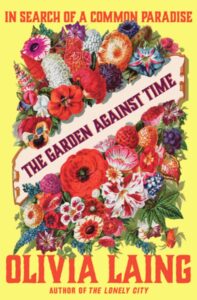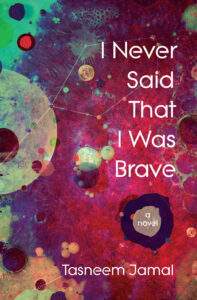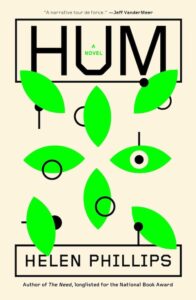October 7, 2024
The Garden Against Time, by Olivia Laing
“How strange time is. The same patterns keep recurring, a helical sequence of war and sickness, from out of which emerged the same green-veined dream.”
For a book that’s about her own backyard, Olivia Laing’s THE GARDEN AGAINST TIME: IN SEARCH OF A COMMON PARADISE takes her reader everywhere and back through time as she tells the story of her restoration of an 18th century walled garden begun when she and her partner move to Suffolk in 2020, a year that becomes “that year.” As she moves through her own plague seasons, she draws connections to gardens in the minds of Milton (PARADISE LOST) and rural poet John Clare, changes and trends in English landscaping ( a word that, she tells us, began with art and paintings), of how the mid-Atlantic slave-trade was the foundation of so much wealth that shaped the English landscape (I am also reading Tanya Talaga’s THE KNOWING, from which I learn that those very same investors were reaping the rewards of the North American fur trades that would decimate the continent’s Indigenous peoples), and how gardens have also been at the forefront of movements committed to imagining better ways of organizing society, which seems especially pressing to consider in the sweltering summer of 2022 as parts of the UK burned and watering her garden, Laing thought, seemed like an irresponsible indulgence. And how new life took root in the brutal bomb sites of London after the Blitz, so many of these sites turned into parks, and she casts her mind too back to Mark Rumary, the famed UK garden designer who’d once owned her home (and lived with his partner back when, a neighbour tells her, “it wasn’t good to be gay”) and whose vision is everywhere in the garden still, Laing reflecting on her own childhood growing up with a gay parent in the 1980s, and what the garden must have meant to both of them as place of freedom and belonging. And there’s so much more than that, every single page bringing fascinating rewards and gorgeous insight, doses of hard reality coupled with vision and hope. The garden is never simply this or that, instead the garden is a place for both, and, and for the remarkable persistence of living things (gardeners among them).
October 3, 2024
The Possibility of Sweetness
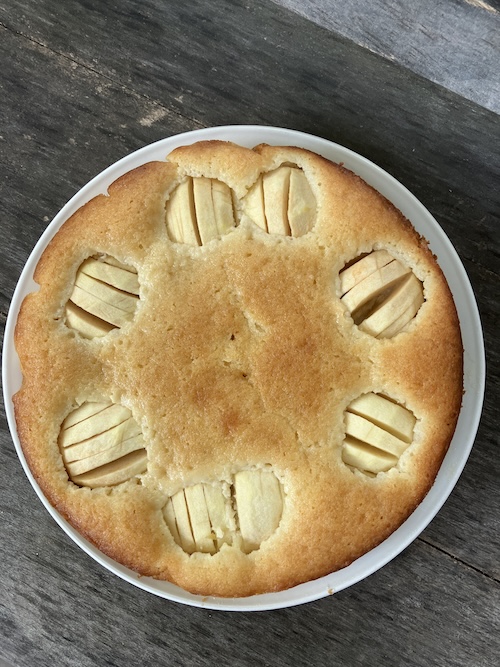
It’s been almost a year now since unimaginable horror was unleashed, and members of my community put up different flags in response, divisions calcified. “I’ve already lost friends to this, and I’m not afraid to lose another,” somebody warned me on Facebook a few weeks later, and thankfully this person wasn’t actually my friend, see you later, but their comment made me reflect about how I want to respond in this moment that has stretched into a near-unbearable year. A year in which people have celebrated and/or shrugged indifferently at massacre and murder, extremism begetting extremism, monstrous disregard for human life, for international law, for the world order. I have seen photos of pieces of children. I have seen photos of pieces of children. I have seen. And I have felt discomfort with my reluctance to not stand with. I’ve felt conflicted about my decision to sign no open letters. I’ve been implored to be sure I’m on the right side of history, to perform it, but history has never been as tidy as that, and neither have I, and what I’ve really felt is that anything I do in such a wretchedly divided world to deepen divisions in my own community is to take a terrible thing and make it even worse, although making a terrible thing worse does seem to have been the main response of anyone with meaningful power at every turn this year, seizing the opportunity for hardening, hatred, and the impossibility for any other story.
It’s just that when I see peoples pitted against either, the endless human story, a thing I’ve never thought is, “We sure need more of that.” A line I can’t stop thinking about: “Both sides brought large speaker systems and screamed duelling chants at each other.” I don’t want to be part of that. I can’t be hard and resolute, not with my friends. Not with my neighbours. Which is not the same as making nice just to get along. Annoyingly, I can argue with every side of this issue, AND I HAVE, except maybe the side that declares that all human life is precious (every one a universe) and that if your politics is turning people into refugees, you’re doing it wrong.
This morning I saw a post from a journalist explaining that during the Jewish High Holidays, checkpoints are closed in the West Bank, which means that the people who live there are effectively under a curfew for three days. And I think of those people as I eat my apple and honey cake, the cake I bake every year because I am culinarily impressionable, and also because I enjoy celebrating a new year (which is to say: POSSIBILITY) anywhere I can, whether it be Persian, Lunar, Jewish. I think of people I admire (many of them Jewish) who have spent this year showing up for Palestinian freedom in loud, powerful and necessary ways. I think of my Jewish friends who have shown up in ways that are quieter and more personal, but no less essential. I think of everybody who has spent the past year with an aching heart, with a voice that’s sore from screaming, whose well of empathy has not yet run dry, all those people who can hold space for the mess of experience and reality and so many awful feelings.
A new year means faith, and hope, the possibility of sweetness.
I believe in this. I believe in us.
September 27, 2024
I Never Said I Was Brave, by Tasneem Jamal
There is so much to wonder about in Tasneem Jamal’s new novel, I NEVER SAID THAT I WAS BRAVE, a strange and compelling story of a complicated friendship between two women whose families were connected in Kitchener’s Ugandan-Indian community after arriving in Canada in the 1970s. Not least of all, what the narrator’s name is, as she takes us through the years of her friendship with Miriam, from their time together as children to their relationship as adults—the narrator flounders in academic, Miriam becomes an astrophysicist who studies dark matter. The narrator’s address is very intimate, her story seemingly meandering as she moves back and forth in time, and across the country too—but what is she hiding from us? What is left unsaid? Why does she frame her story precisely the way she does? How much can we rely on the narrator to tell us who Miriam was, as she describes her friend’s complicated relationships, the way she absorbed so much light, leaving everybody else in shadow. And why does she tell us so little of herself? In some ways, though this novel is far from gothic, I NEVER SAID THAT I WAS BRAVE reminded me of Daphne Du Maurier’s REBECCA, another novel of obsession in which the narrator obfuscates and hides.
September 27, 2024
Coming Up This Fall
I’m looking forward to some really cool fall events, kicking off this weekend at Toronto’s Word on the Street Festival, where I get to interview the author of one of my favourite books of the year!
September 29: WOTS with Shawn Micallef and STROLL
Stage C: Vibrant Voices of Ontario presented by Ontario Creates @ontariocreates
September 29th
2:15 – 3:00 PM
“Unofficial Mayor of Toronto” Shawn Micallef joins us to talk about the newly updated edition of his Toronto favorite book, Stroll: Psychogeographic Walking Tours of Toronto.
What is the ‘Toronto look’? Glass skyscrapers rise beside Victorian homes, and Brutalist apartment buildings often mark the edge of leafy ravines, creating a city of contrasts whose architectural look can only be defined by telling the story of how it came together and how it works, today, as an imperfect machine.
Join Shawn Micallef in conversation with local author Kerry Clare about meandering our city’s unique neighborhoods and celebrating a city in motion.
Presented by the Toronto Public Library @torontolibrary
*
I’m excited to talk with these two great authors about their wonderful fall books. Event begins at 7:30pm.
*
October 25: Toronto Library Virtual Event on Women in Piracy
From the ‘golden age’ of pirates to today, Women have played an integral, yet untold, role in piracy. In this special panel conversation, three leading experts on the legacy of Women in piracy discuss all the strange and scary real life adventures of Women living, surviving and thriving amongst pirates.
Rebecca Simon is a historian of early modern piracy, Colonial America, the Atlantic World, and maritime history. She is the author of Pirate Queens: The Lives of Anne Bonny and Mary Read, The Pirates’ Code: Laws and Life Aboard Ship and Why We Love Pirates: The Hunt for Captain Kidd and How He Changed Piracy Forever.
Katherine Howe is a New York Times bestselling and award-winning historian and novelist. She is the author of A True Account: Hannah Masury’s Sojourn Amongst the Pyrates, Written by Herself and The Penguin Book of Pirates.
Brittany VandeBerg is an Associate Professor in the Department of Criminology and Criminal Justice at the University of Alabama, USA. She is the author of Women of Piracy.
Rebecca, Katherine and Brittany discuss Women in piracy with host Kerry Clare.
Friday October 1, 12-1 pm. Sign up here.
*
October 27: The Turning the Page on Cancer Readathon
Once again, I’m taking part in the Turning the Page on Cancer Readathon to raise money for Rethink, in memory of my friend Melanie Masterson, who died in 2022 after living with metastatic breast cancer. I’d be grateful if you could support the campaign…or even sign up to take part yourself!
*
November 5: Queen Books Event with Yvonne Blomer, Ariel Gordon, and Sue Sorensen
Details coming soon!
September 24, 2024
HUM, by Helen Phillips
In Helen Phillips’ HUM, as with her previous novel THE NEED, the most unsettling parts of the narrative are those that are most familiar, and I don’t even mean the post-apocalyptic backdrop that certainly draws on the possibilities of our present (the forests have burned, May’s children have never seen strawberries growing on a plant, unhealthy air quality is a baseline, the heat is unrelenting, and society is structured on a network of AI systems called “hums”), but instead the anxiety underlying every sentence, an echo of the title. This is not so much a plot or character-based novel as a vibes-based novel, and the vibes are bad. Desperate for money after losing her job, AI developer May agrees to undergo a slight facial modification procedure that she believes is part of a counter-surveillance movement in a society where everything is tracked, and with the payout she splurges for tickets for her family to three days at The Botanical Gardens, a Disney-esque simulation of the natural world she so longs for: “She had done it. She had borne them to a clean green place.” May leaves her phone behind when they leave home, and makes her husband and children do the same (the children, like all children, wear gadgets on their wrist called “bunnies”), and May dares to suppose her family might have a reprieve from the relentless tracking and advertising from the devices they’re all attached to, but she comes to regret her choice when things go wrong and there is a chance her children might be lost to her. None of this description really doing justice to what’s going on here, to the force that drives the story forward, to the accelerated beat-beat-beat of May’s anxious heart as she struggles to hold her family, her marriage, her whole world together. Any parent who has ever considered picking up Jonathan Haidt’s THE ANXIOUS GENERATION will see themselves in May, and while all this might not sound so appealing (who really wants a mirror-image of their most stressed-out self?), Phillips’ taut narrative reads up fast and is utterly gripping, and is rooted in that part of the maternal experience that’s even more essential than worry, and that is love.
September 23, 2024
AFAF in the Fall

“It was three o’clock in the morning, the two of them the only ones still awake, still buzzing after a night of drinking and fun. Their apartment had been full of people that night, still scattered throughout. It was near the beginning of their final year at school, it felt like they were at the centre of the world, sitting on Clara’s windowsill, dizzy and overlooking the rooftops. They’d been singing “Landslide” at the top of their lungs until someone from a neighbouring building had screamed out of the window for them to shut up.
Jess was smoking, which was mostly an affectation, but Clara didn’t call her on it because friends forgave each other these things, the same way Jess never said a word when Clara sang the wrong words to the songs on the CDs they played in the kitchen: ‘We sit here in our store and drink some toast…”
A book for all seasons! Have you picked up ASKING FOR A FRIEND yet?
September 20, 2024
Christmas in September
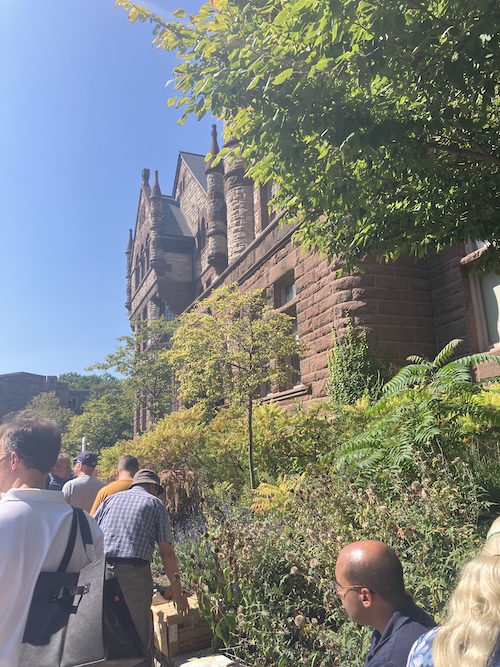
I have sore arms today after schlepping my haul around the Victoria College Book Sale yesterday for two hours, but it was so worth it (and the gains, bro!). But first—it seems I’ve been remiss at posting about the Victoria College Book sale on my blog, nothing since 2016 (which was the first time I’d attended without a baby or toddler in many years). I promise I’ve been showing up since, except for during the pandemic when the sale was cancelled. On Instagram I posted about 2017 (an EXCELLENT haul!), the beautiful Barbara Pym first editions I got in 2019, last year’s stack was particularly glorious.
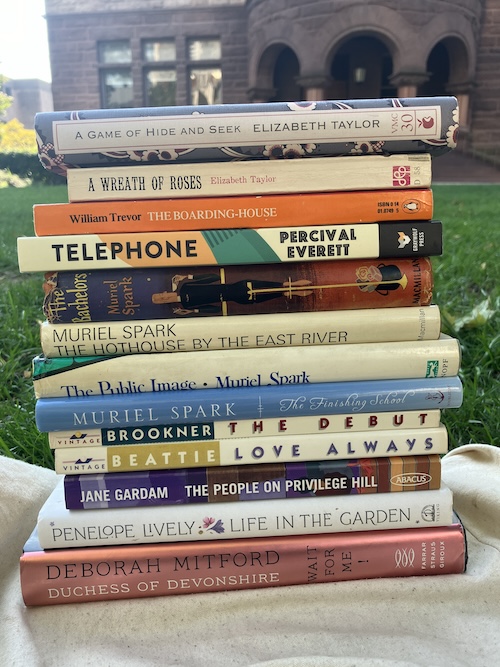
Once upon a time I was so broke I could only go to the sale on half-price Monday, but I’ve moved up in the world and can now afford the $5 entry on opening day, which paid off so well, because I ended up with a pile of (North American) first edition Muriel Sparks, a pristine Dutton paperback of an Elizabeth Taylor, and a copy of William Trevor’s third novel (his early works are my favourite) that is SIGNED! Plus two beautiful Vintage Contemporaries, a beautiful Percival Everett novel to follow up my reading of James, and a Debo Mitford memoir that I’ve never read (though I do have her earlier book Counting My Chickens. I wouldn’t want you to think I didn’t…)
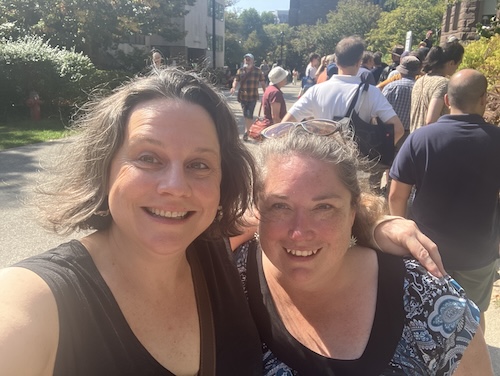
It was especially exciting to know that I’d see my friend Amy Lavender Harris there for our annual date, that we didn’t even need to make a plan for it. We started hanging out when our children were babies, and now they’re both in high school, which means Amy and I are unencumbered as we’re rifling through cardboard boxes of musty books, same as we ever was.
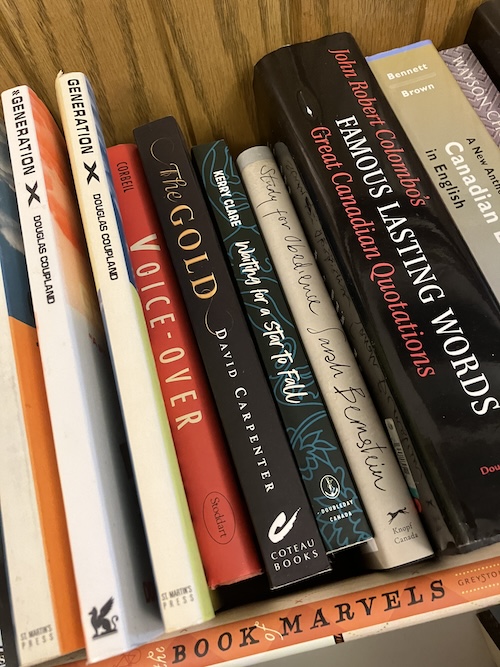
Today was a significant milestone in one way, however: my first Vic Book sale in which I encountered one of my own books, blessedly not inscribed to a beloved friend. (Phew.) Look at me right there with Douglas Coupland and last year’s winner of the Giller Prize (and two books from small presses that no longer exist. Sigh.)
I also ran into two lovely people who I worked with at the Vic Library 25 years ago, back when I was a student assistant and the world’s biggest idiot.
September 18, 2024
On Emily-Splaining

People are weird on the internet. A couple of weeks ago, a comment turned up on a post I published more than four years ago about rereading Emily of New Moon, and this commenter was not having it, unleashing a diatribe of scolding. And not even for having stolen a copy of the book from my school library (which would have been fair!), but for having understood Emily within the context of Anne, and for judging a book by its cover. Of my trouble with the drowned barn cats, they wrote “If your delicate modern sensibilities are disturbed by this, well — you need to read other books.” OMG, SERIOUSLY, COMMENTER: DO YOU KNOW WHO I AM?? I have read ALL THE BOOKS. And then they proceeded to answer all the questions I’d posed in my post, which was really really annoying since these were actually the questions I’d had about the books when I was 9, and I’d actually worked most of them out by now. It was more than a little PATRONIZING.
But I’m not bringing this all up so you can be indignant along with me. (Okay, I am A LITTLE BIT). But instead because I also really understood where this annoying person was coming from—and perhaps this is why I’m especially indignant because I’m just the same. To ASSUME that you could explain L.M. Montgomery to ME! And I understand that there is a whole community of Montgomery scholars and historians, and they even have a society, and that’s fine, but I’m still quite sure that nobody there could have the connection to Montgomery and her work that I do. I’m entirely wrong about this, just in case that needs stating, but it doesn’t matter, because my connection to Anne and to L.M. Montgomery’s story feels so fundamental and so personal that it’s impossible to imagine that anyone else could precisely know what I’m talking about when I mention it. And of course they can, but there are parts of the story that were mine alone—my Anne of Green Gables clothespeg doll I bought in Fenelon Falls, the Anne of Green Gables Treasury I absolutely coveted from this folksy store at the mall and saved up for. When I was Anne for Halloween, the copies of the novel that were gifts from my Grandma. The time we were out on a boat with another family, and I asked my mom how Anne and Gilbert managed to make all their children because, according to Anne of Ingleside, they slept in separate bedrooms…
If that commenter is anything like me, they are possessive of their Emily. Other people might have their own Emily stories, but it’s not the same, and it’s the strangeness of these characters we got to know in our most formative years, the way it felt like they were speaking directly to our souls, but other readers were picking up the very same signals. The way that reading seems like such a solitary thing, a private universe, but there are so many of these, and the shock of realizing the connection may not have been quite so intimate after all.
September 16, 2024
The Opposite of a Void

My Pickle Me This Digest for September is out now, with a short piece about literary community and the role I’d like to play in it. Free for all readers, and you can read it here!
September 12, 2024
THE WEDDING, by Gurjinder Basran
Gurjinder Basran’s The Wedding begins with a Jane Austen epigraph, which had me supposing this might be an Uzma Jalaluddin-esque modern take on social mores, but set among Sikh-Canadian families instead of in the Muslim-Canadian community that Jalaluddin writes about, and while there’s a bit of that, there’s also none of the formality, which makes for a wild literary adventure, and I loved it. Each chapter moves between the perspectives of family members, neighbours, event staff, and those of Devi and Baby themselves, bride and groom, whose wedding marks the joining of two prominent families in Vancouver. And things are not going well—Baby’s dad is driving a cab to earn extra money to afford the lavish occasion, there are rumours of Devi having cheated on a trip to Las Vegas with a local gangster involves with a shooting that put Baby’s brother in a wheelchair, Baby’s not sure if he ever really loved Devi or if the wedding preparation has turned her into Bridezilla. Meanwhile Devi is considering if she’ll manage to avoid a trap like the marriage between her mother and abusive father. The wedding photographer’s mother has set him up on a date with Baby’s out of town cousin, having written a profile that falsely claims he’s an engineer. Local journalist Priya Deol is doling out love advice, but perhaps needs help of her own. The bigoted neighbour has concerns about the noise, as the wedding unfolds over days, characters considering the role of ritual and tradition, whether the why of it all matters, what it means to listen to one’s heart. A delicious page-turner, but also rich with depth and meaning, The Wedding is a terrific read.
